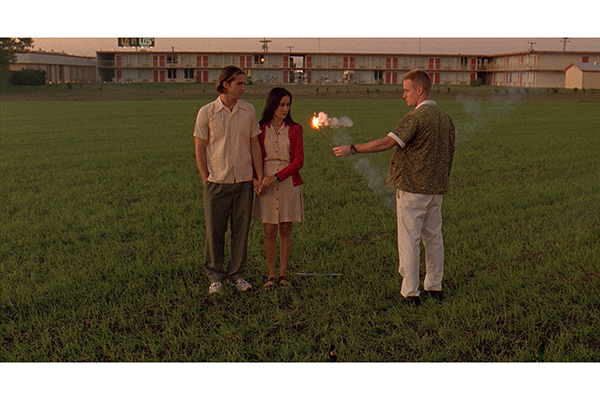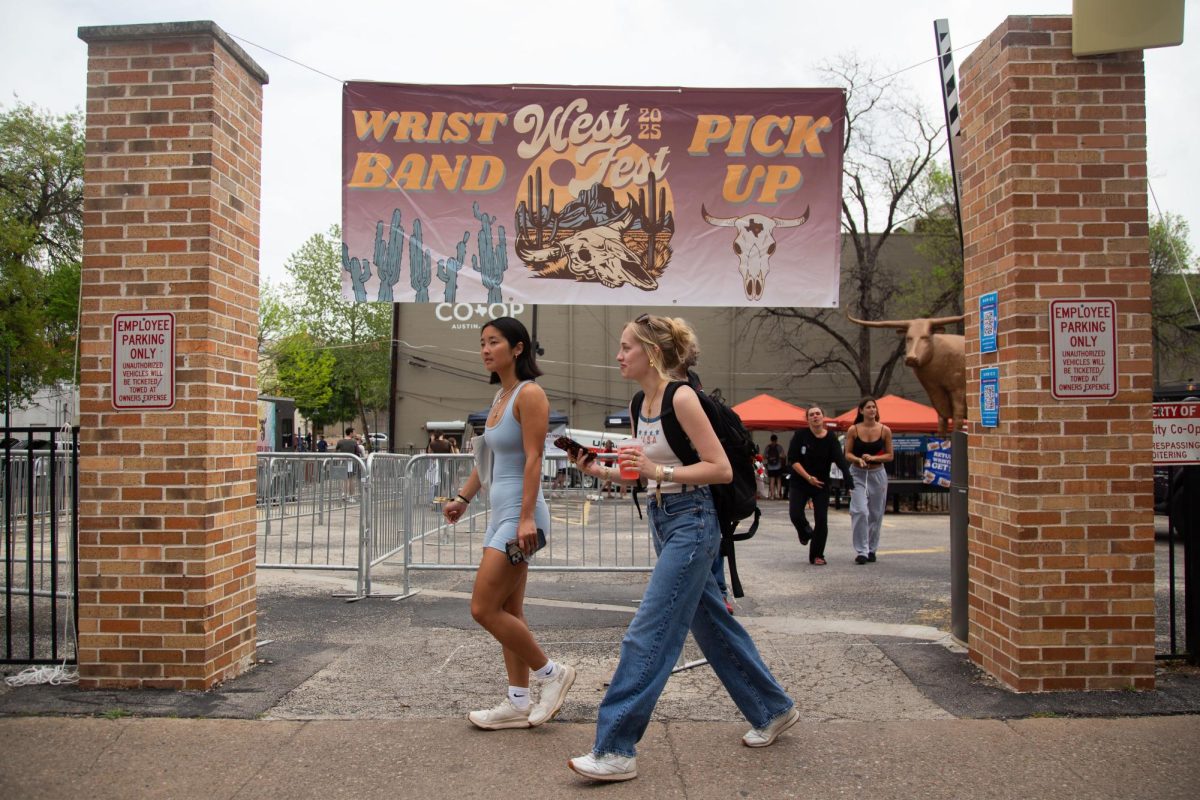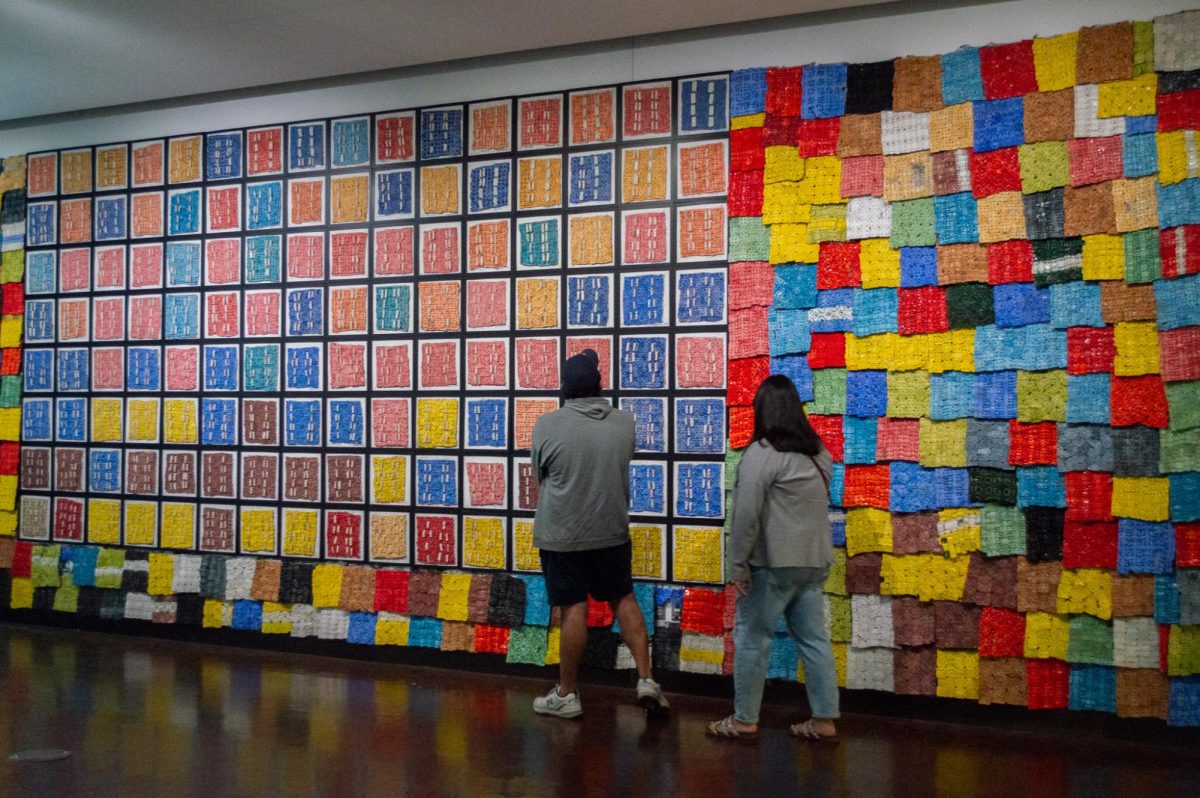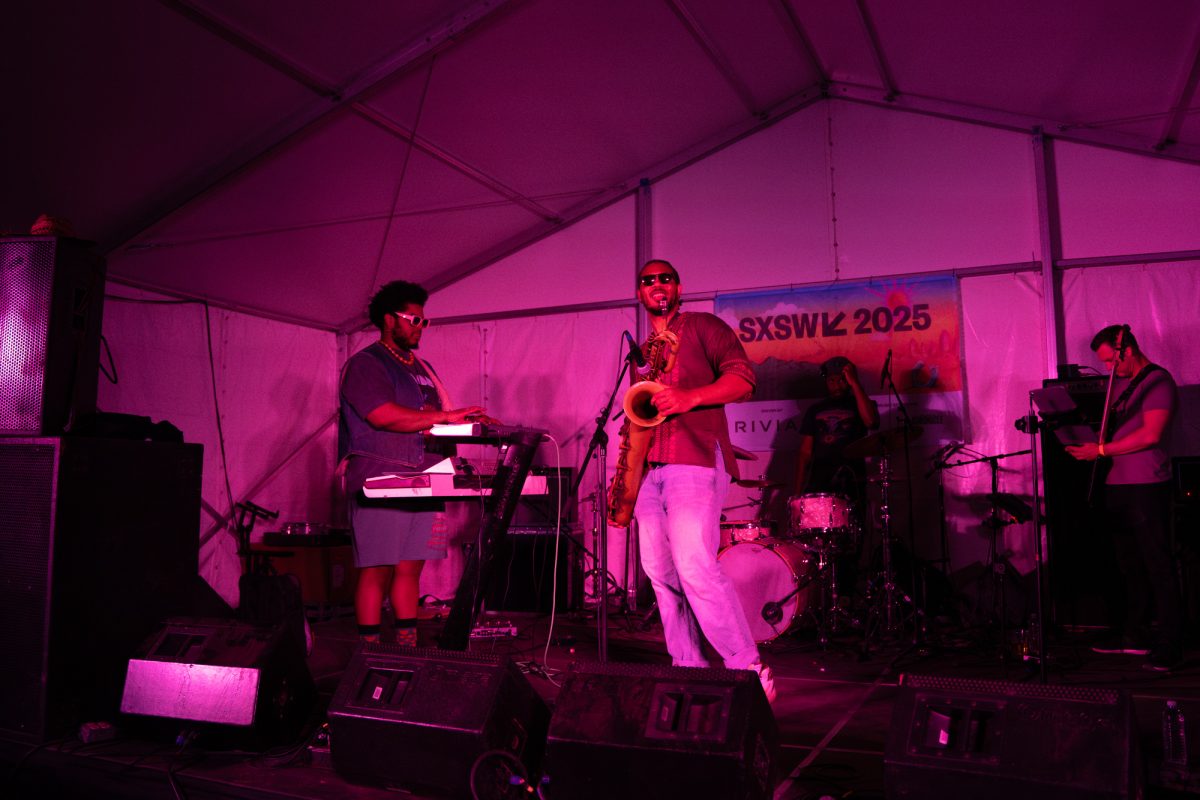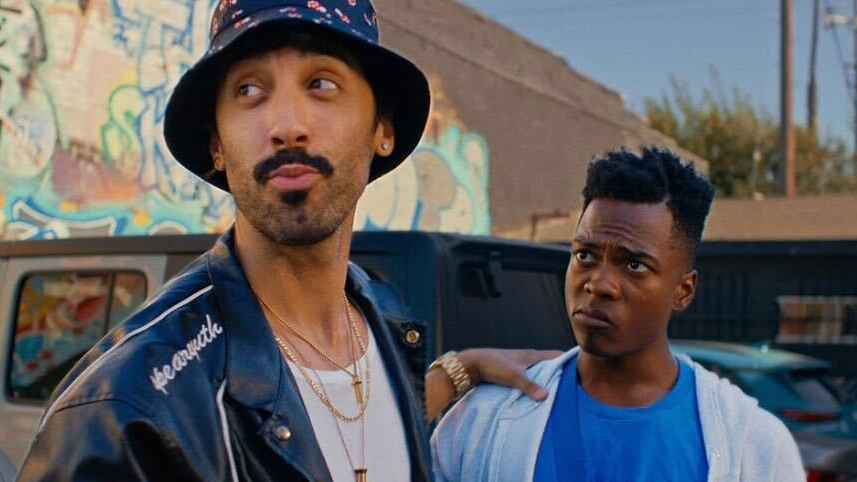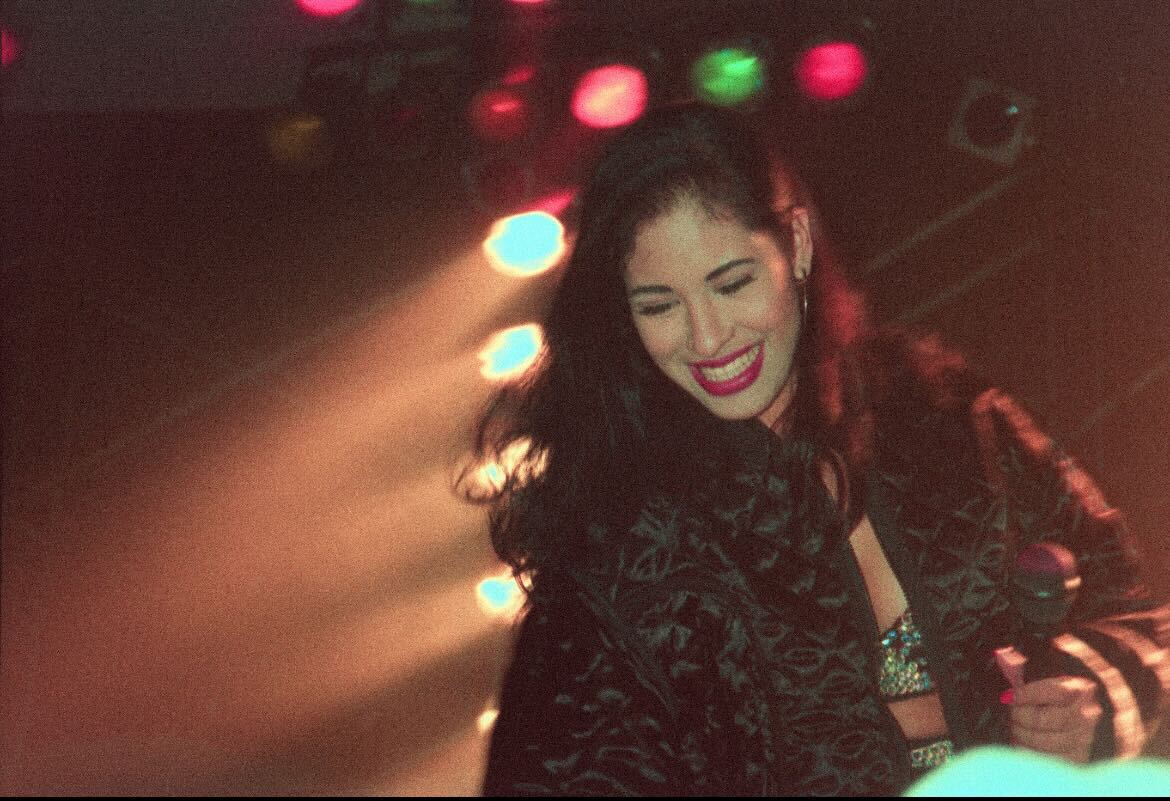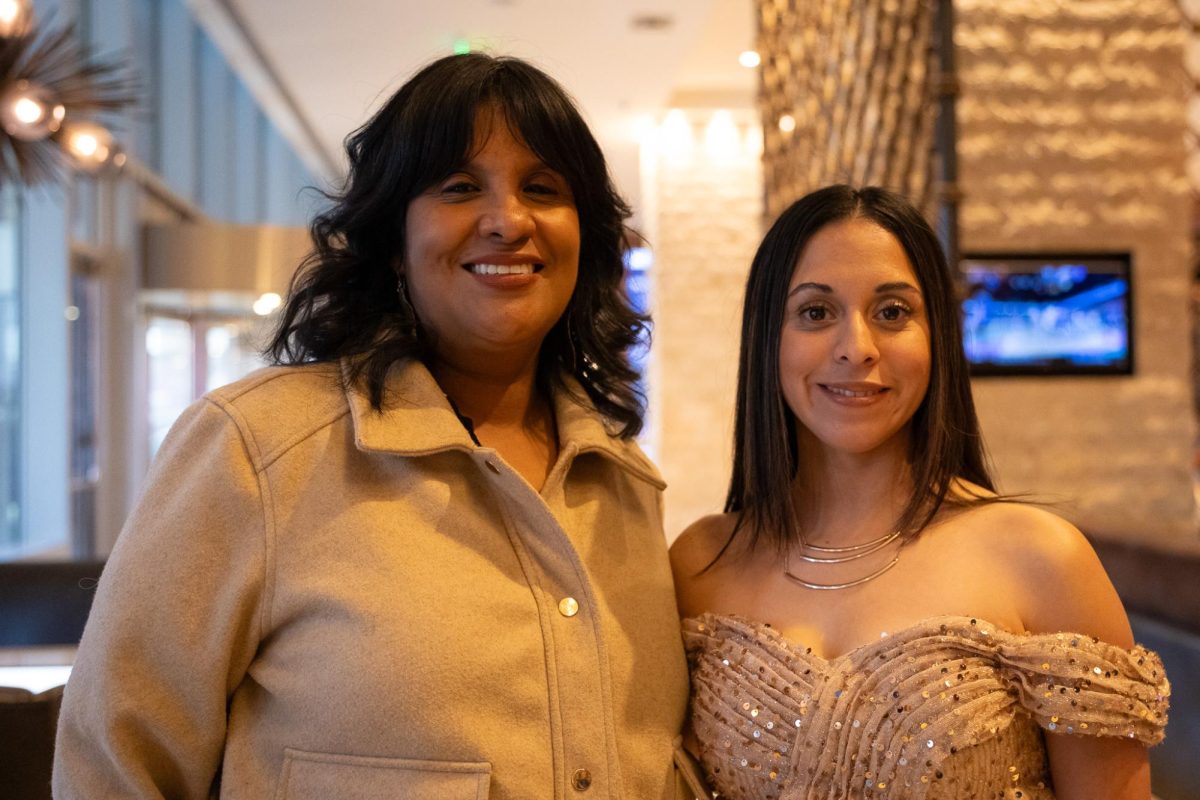Early in the film “Bottle Rocket”, Luke Wilson’s character — disillusioned 20-something Anthony — captures the essence of the movie with one line. When asked, “You’re really complicated, aren’t you?” Anthony responds, “I try not to be.”
For all its idiosyncrasies and stylistic quirks, Wes Anderson’s debut feature film doesn’t try to reinvent the wheel of independent cinema. Twenty-four years after its Feb. 21, 1996 release, it is clear the film allowed Anderson and a fresh-faced Owen Wilson to lay the groundwork for an indie-comedy empire that culminated in groundbreaking later works from the duo.
Anderson, studying philosophy, and Owen Wilson, majoring in English, met in a UT screenwriting class in 1989. The classmates soon became friends and later roommates. Their misadventures and antics as young Austinites were catalysts for their first screenplay five years later, an idiot crime comedy named “Bottle Rocket.”
An experiment in style for Anderson, “Bottle Rocket” wasn’t a standout in a crowded field of ‘90s indies. Director Richard Linklater (Dazed and Confused) held a firm grip on the burnout subgenre, and director Quentin Tarantino (Reservoir Dogs) was a giant in gritty crime movies.
What separates Anderson from his contemporaries becomes strikingly clear halfway through the flick. In a charming sequence between Anthony and motel housekeeper Inez (Lumi Cavazos), the director reveals he possesses something rare among filmmakers — heart.
Anthony and Inez don’t speak the same language, but his English and her Spanish aren’t barriers to their budding romance. In a film about dumb friends and their failed robberies, Anderson highlights fleeting moments of passion and camaraderie. In a decade seemingly marked by human disconnect, Anderson turns to joy and humor.
That passion is emphasized by beautiful hues of yellow set against moody blue tints throughout the film. The mustard yellow jumpsuit worn by Dignan (Owen Wilson) makes for a stunning visual against the dim white facility of his final heist. Vivid color palettes would become a hallmark of Anderson’s filmography, most notably in “The Grand Budapest Hotel” and “Moonrise Kingdom.”
In retrospect, though, “Bottle Rocket” was a direct precursor to Anderson’s more stylized film that established him as a heavyweight in Hollywood — “The Royal Tenenbaums.” Released in 2001, Anderson expanded his ensemble cast while still working with the Wilson brothers. At that point, the filmmaker knew his strengths and weaknesses, crafting a more concise yellow color palette and ditching the giddy humor for dry comedy.
As for the performances in “Bottle Rocket,” Owen Wilson outshined his brother Luke in every scene they shared. Where Luke is understated, Owen is fine-tuned to natural riffs and quips. Perhaps Owen’s character was better written to fit his humor, or maybe that’s the reason Anderson collaborated with Owen far more times than Luke. Overall, both characters are mostly forgettable.
It’s neither the story nor the characters that make “Bottle Rocket” a classic. The hints of triumph and moments of glee throughout the film leaves viewers anxious for another Anderson-Wilson premiere. If nothing else, “Bottle Rocket” serves as a sampler for Anderson’s later films, containing all the nuance and gimmicks but lacking the fine-tuned style the filmmaker would later master.
4/5

